- Home
- Holly Black
Bad Seeds: Evil Progeny
Bad Seeds: Evil Progeny Read online
BAD SEEDS:
EVIL PROGENY
STEVE BERMAN
Copyright © 2013 by Steve Berman.
Cover art by Myriam Moreno, Samantha Thiele.
Cover design and art by Sherin Nicole.
Ebook design by Neil Clarke.
All stories are copyrighted to their respective authors, and used here with their permission.
ISBN: 978-1-60701-414-0 (ebook)
ISBN: 978-1-60701-393-8 (trade paperback)
PRIME BOOKS
www.prime-books.com
No portion of this book may be reproduced by any means, mechanical, electronic, or otherwise, without first obtaining the permission of the copyright holder.
For more information, contact Prime Books at [email protected].
Contents
Introduction— Steve Berman
If Damon Comes— Charles L. Grant
Treats— Norman Partridge
The Family— Halli Villegas
The Horse Lord— Lisa Tuttle
My Name Is Leejun— John Schoffstall
Princess of the Night— Michael Kelly
Duck Hunt— Joe R. Lansdale
The Choir— Joel D. Lane
Children of the Corn— Stephen King
Yellowjacket Summer— Robert R. McCammon
The Stuff that Goes on in Their Heads— Michael Marshall Smith
Second Grade— Charles Antin
Respects— Ramsey Campbell
Melanie Klein Said— Robert McVey
Gaslight— Jeffrey Ford
Endless Encore— Will Ludwigsen
Cockroach— Dale Bailey
By the Mark— Gemma Files
The Disappearance of James H___— Hal Duncan
I Was a Teenage Slasher Victim— Stephen Graham Jones
Blue Rose— Peter Straub
Making Friends— Gary Raisor
You Deserve— Alex Jeffers
The Queen of Knives— Georgina Bruce
The Naughty List— Christine Morgan
The Perfect Dinner Party— Cassandra Clare & Holly Black
Make Believe— Michael Reaves
“I see no hope for the future of our people if they are dependent on frivolous youth of today, for certainly all youth are reckless beyond words … ” —Hesiod
“A child is a curly dimpled lunatic.”
—Ralph Waldo Emerson
Introduction
I was a teen when I read Lord of the Flies for the first time. High school English class reading assignments had varied between Romeo and Juliet (burdened by innumerable footnotes to allow a twentieth-century adolescent some comprehension of Renaissance English and quips) and Salinger’s The Catcher in the Rye, which, written in 1951, seemed as oddly dated to me as Shakespeare’s plays even though less than three decades had passed since it was published. But then I found myself lost, adrift, on the island with those British boys.
Goldman’s novel was also a product of the 1950s, also a commentary on adolescence and the truth between the perceptions of adults and the realities of youth. But what left me rapt, what kept me reading until well past any reasonable bedtime, was the terrors wrought by Jack Merridew, a choirboy, on fair Ralph and poor Piggy. As a child, I had known bullying all my life (a list of playground sins: asthmatic, bespectacled, scrawny, unathletic, and a definite sissy), but in the 1970s and 1980s no one addressed the constant taunting and menacing as they do now. I found Jack the embodiment of all the cruelties I knew. Jack Merridew was evil, more so than any boogeyman found in the works of fantasy authors I’d read—worse than Lloyd Alexander’s Horned King or John Bellairs’s Selenna Izard—because in the real world Jack Merridews preyed on boys like me.
Once you have been haunted by a childhood bully, you never quite recover. Storytellers know this, as much as they know that the nineteenth-century nursery rhyme “What Are Little Boys Made Of?” offers still a popular misconception of “puppy-dogs’ tails” and “sugar and spice” for little girls. Laird Koenig’s eerie Rynn Jacobs from The Little Girl Who Lives Down the Lane or Kubrick’s infamous staging of the haunting Grady girls from The Shining challenge that.
There are stories here that suggest children return in spades the violence inflicted upon them by adults. Sharper than a serpent’s tooth? Perhaps. Or perhaps the hand that feeds them deserves to be bitten.
Many of the stories in this book are set during Halloween, when children are encouraged to revel in monster costumes, demand treats from their elders or inflict mayhem on their property. Perhaps what we think of as costume is really the outward expression of the inner bête noire hidden away during the rest of the year. Except, of course, during recess on the playground.
Of course, not everyone’s son or daughter, niece or nephew, is a terror. Remind yourself of that next time you witness a tantrum, the thrashing of limbs and high-pitched yowls. Remind yourself of that next time the little one says with utter seriousness “I hate you” or “I wish you were dead.” Remind yourself that when you shut the door to the bedroom and realize how few short steps it is through the darkened hall to your own door, to your own bed, when you’ll be asleep. And helpless against the Jack Merridews and Rynn Jacobses that we have inadvertently raised.
Now remember to play nice.
Steve Berman
Spring 2013
If Damon Comes
Charles L. Grant
Fog, nightbreath of the river, luring without whispering in the thick crown of an elm, huddling without creaking around the base of a chimney; it drifted past porch lights, and in passing blurred them, dropped over the street lights, and in dropping grayed them. It crept in with midnight to stay until dawn, and there was no wind to bring the light out of hiding.
Frank shivered and drew his raincoat’s collar closer around his neck, held it closed with one hand while the other wiped at the pricks of moisture that clung to his cheeks, his short dark hair. He whistled once, loudly, but in listening heard nothing, not even an echo. He stamped his feet against the November cold and moved to the nearest corner, squinted and saw nothing. He knew the cat was gone, had known it from the moment he had seen the saucer still brimming with milk on the back porch. Damon had been sitting beside it, hands folded, knees pressed tightly together, elbows tucked into his sides. He was cold, but refused to acknowledge it, and Frank had only tousled his son’s softly brown hair, squeezed his shoulder once and went inside to say goodbye to his wife.
And now … now he walked, through the streets of Oxrun Station, looking for an animal he had seen only once—a half-breed Siamese with a milk-white face—whistling like a fool afraid of the dark, searching for the note that would bring the animal running.
And in walking, he was unpleasantly reminded of a night the year before, when he had had one drink too many at someone’s party, made one amorous boast too many in someone’s ear, and had ended up on a street corner with a woman he knew only vaguely. They had kissed once and long, and once broken, he had turned around to see Damon staring up at him. The boy had turned, had fled, and Frank had stayed away most of the night, not knowing what Susan had heard, fearing more what Damon had thought.
It had been worse than horrid facing the boy again, but Damon had acted as though nothing had happened; and the guilt passed as the months passed, and the wondering why his son had been out in the first place.
He whistled. Crouched and snapped his fingers at the dark of some shrubbery. Then he straightened and blew out deeply held breath. There was no cat, there were no cars, and he finally gave in to his aching feet and sore back and headed for home. Quickly. Watching the fog tease the road befo
re him, cut it sharply off behind.
It wasn’t fair, he thought, his hands shoved in his pockets, his shoulders hunched as though expecting a blow. Damon, in his short eight years, had lost two dogs already to speeders, a canary to some disease he couldn’t even pronounce, and two brothers stillborn—it was getting to be a problem. He was getting to be a problem, fighting each day that he had to go to school, whining and weeping whenever vacations came around and trips were planned.
He’d asked Doc Simpson about it when Damon turned seven. Dependency, he was told; clinging to the only three things left in his life—his short, short life—that he still believed to be constant: his home, his mother … and Frank.
And Frank had kissed a woman on a corner and Damon had seen him.
Frank shuddered and shook his head quickly, remembering how the boy had come to the office at least once a day for the next three weeks, saying nothing, just standing on the sidewalk looking in through the window. Just for a moment. Long enough to be sure that his father was still there.
Once home, then, Frank shed his coat and hung it on the rack by the front door. A call, a muffled reply, and he took the stairs two at a time and trotted down the hall to Damon’s room set over the kitchen.
“Sorry, old pal,” he said with a shrug as he made himself a place on the edge of the mattress. “I guess he went home.”
Damon, small beneath the flowered quilt, innocent from behind long curling lashes, shook his head sharply. “No,” he said. “This is home. It is, Dad, it really is.”
Frank scratched at the back of his neck. “Well, I guess he didn’t think of it quite that way.”
“Maybe he got lost, huh? It’s awfully spooky out there. Maybe he’s afraid to come out of where he’s hiding.”
“A cat’s never—” He stopped as soon as he saw the expression on the boy’s thin face. Then he nodded and broke out a rueful smile. “Well, maybe you’re right, pal. Maybe the fog messed him up a little.” Damon’s hand crept into his, and he squeezed it while thinking that the boy was too thin by far; it made his head look ungainly. “In the morning,” he promised. “In the morning. If he’s not back by then, I’ll take the day off and we’ll hunt him together.”
Damon nodded solemnly, withdrew the hand and pulled the quilt up to his chin. “When’s Mom coming home?”
“In a while. It’s Friday, you know. She’s always late on Fridays. And Saturdays.” And, he thought, Wednesdays and Thursdays, too.
Damon nodded again. And, as Frank reached the door and switched off the light: “Dad, does she sing pretty?”
“Like a bird, pal,” he said, grinning. “Like a bird.”
The voice was small in the dark: “I love you, Dad.”
Frank swallowed hard, and nodded before he realized the boy couldn’t see him. “Well, pal, it seems I love you, too. Now you’d better get some rest.”
“I thought you were going to get lost in the fog.”
Frank stopped the move to close the door. He’d better get some rest himself, he thought; that sounded like a threat.
“Not me,” he finally said. “You’d always come for me, right?”
“Right, Dad.”
Frank grinned, closed the door, and wandered through the small house for nearly half an hour before finding himself in the kitchen, his hands waving at his sides for something to do. Coffee. No. He’d already had too much of that today. But the walk had chilled him, made his bones seem brittle. Warm milk, maybe, and he opened the refrigerator, stared, then took out a container and poured half its contents into a pot. He stood by the stove, every few seconds stirring a finger through the milk to check its progress. Stupid cat, he thought; there ought to be a law against doing something like that to a small boy that never hurt anyone, never had anyone to hurt.
He poured himself a glass, smiling when he didn’t spill a drop, but he refused to turn around and look up at the clock; instead, he stared at the flames as he finished the second glass, wondering what it would be like to stick his finger into the fire. He read somewhere … he thought he’d read somewhere that the blue near the center was the hottest part and it wasn’t so bad elsewhere. His hand wavered, but he changed his mind, not wanting to risk a burn on something he only thought he had read; besides, he decided as he headed into the living room, the way things were going these days, he probably had it backward.
He sat in an armchair flanking the television, took out a magazine from the rack at his side and had just found the table of contents when he heard a car door slam in the drive. He waited, looked up and smiled when the front door swung open and Susan rushed in. She blew him a distant kiss, mouth I’ll be back in a second, and ran up the stairs. She was much shorter than he, her hair waist-long black and left free to fan in the wind of her own making. She’d been taking vocal lessons for several years now, and when they’d moved to the Station when Damon was five, she’d landed a job singing at the Chancellor Inn. Torch songs, love songs, slow songs, sinner songs; she was liked well enough to be asked to stay on after the first night, but she began so late that Damon had never heard her. And for the last six months, the two-nights-a-week became four, and Frank became adept at cooking supper.
When she returned, her makeup was gone and she was in a shimmering green robe. She flopped on the sofa opposite him and rubbed her knees, her thighs, her upper arms. “If that creep drummer tries to pinch me again, so help me I’ll castrate him.”
“That is hardly the way for a lady to talk,” he said, smiling. “If you’re not careful, I’ll have to punish you. Whips at thirty paces.”
In the old days—the very old days, he thought—she would have laughed and entered a game that would last for nearly an hour. Lately, however, and tonight, she only frowned at him as though she were dealing with a dense, unlettered child. He ignored it, and listened politely as she detailed her evening, the customers, the compliments, the raise she was looking for so she could buy her own car.
“You don’t need a car,” he said without thinking.
“But aren’t you tired of walking home every night?”
He closed the magazine and dropped it on the floor. “Lawyers, my dear, are a sedentary breed. I could use the exercise.”
“If you didn’t work so late on those damned briefs,” she said without looking at him, “and came to bed on time, I’d give you all the exercise you need.”
He looked at his watch. It was going on two.
“The cat’s gone.”
“Oh, no,” she said. “No wonder you look so tired. You go out after him?”
He nodded, and she rolled herself suddenly into a sitting position. “Not with Damon.”
“No. He was in bed when I came home.”
She said nothing more, only examined her nails. He watched her closely, the play of her hair falling over her face, the squint that told him her contact lenses were still on her dresser. And he knew she meant: did you take Damon with you? She was asking if Damon had followed him. Like the night in the fog, with the woman; like the times at the office; like the dozens of other instances when the boy just happened to show up at the courthouse, in the park while Frank was eating lunch under a tree, at a nearby friend’s house late one evening, claiming to have had a nightmare and the sitter wouldn’t help him.
Like a shadow.
Like a conscience.
“Are you going to replace it?” He blinked. “The cat, stupid. Are you going to get him a new cat?”
He shook his head. “We’ve had too much bad luck with animals. I don’t think he could take it again.”
She swung herself off the sofa and stood in front of him, her hands on her hips, her lips taut, her eyes narrowed. “You don’t care about him, do you?”
“What?”
“He follows you around like a goddamn pet because he’s afraid of losing you, and you won’t even buy him a lousy puppy or something. You’re something else again, Frank, you really are. I work my tail trying to help—”
“My salary is pl
enty good enough,” he said quickly.
“—this family and you’re even trying to get me to stop that, too.”
He shoved himself to his feet, his chest brushing against hers and forcing her back. “Listen,” he said tightly, “I don’t care if you sing your heart out a million times a week, lady, but when it starts to interfere with your duties here—”
“My duties?”
“—then yes, I’ll do everything I can to make sure you stay home when you’re supposed to.”
“You’re raising your voice. You’ll wake Damon.”
The argument was familiar, and old, and so was the rage he felt stiffening his muscles. But this time she wouldn’t stop when she saw his anger. She kept on, and on, and he didn’t even realize it when his hand lifted and struck her across the cheek. She stumbled back a step, whirled to run out of the room, and stopped.
Damon was standing at the foot of the stairs.
He was sucking his thumb.
He was staring at his father.
“Go to bed, son,” Frank said quietly. “Everything’s all right.”
For the next week the tension in the house was proverbially knife-cutting thick. Damon stayed up as late as he could, sitting by his father as they watched television together or read from the boy’s favorite books. Susan remained close, but not touching, humming to herself and playing with her son whenever he left—for the moment—his father’s side; each time, however, her smile was more forced, her laughter more strained, and it was apparent to Frank that Damon was merely tolerating her, nothing more. That puzzled him. It was he who had struck her, not the other way around, and the boy’s loyalty should have been thrown into his mother’s camp. Yet it hadn’t. And it was apparent that Susan was growing more resentful of the fact each day. Each hour. Each time Damon walked silently to Frank’s side and slid his hand around the man’s waist, or into his palm, or into his hip pocket.
He began showing up at the office again, until one afternoon when Susan skidded the car to a halt at the curb and ran out, grabbed the boy and practically threw him, arms and legs thrashing, into the front seat. Frank raced from his desk and out the front door, leaned over and rapped at the window until Susan lowered it.

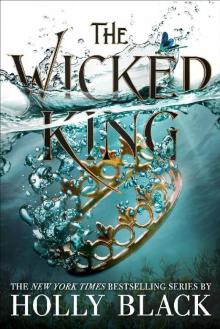 The Wicked King (The Folk of the Air #2)
The Wicked King (The Folk of the Air #2)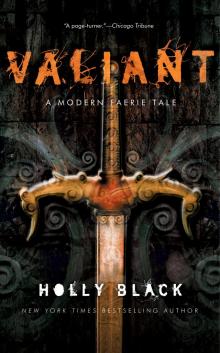 Valiant
Valiant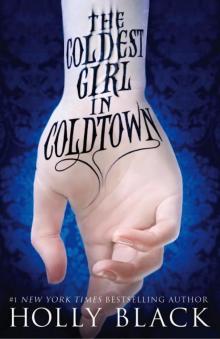 The Coldest Girl in Coldtown
The Coldest Girl in Coldtown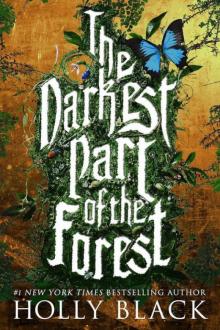 The Darkest Part of the Forest
The Darkest Part of the Forest Tithe
Tithe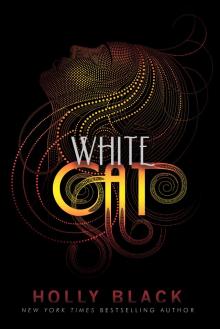 White Cat
White Cat Red Glove
Red Glove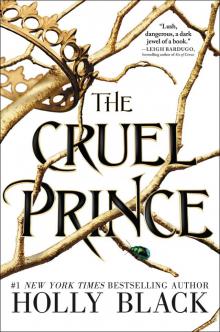 The Cruel Prince
The Cruel Prince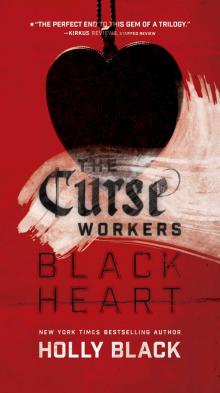 Black Heart
Black Heart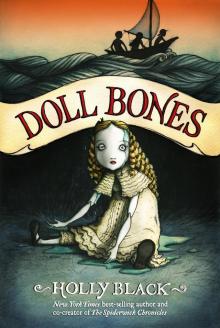 Doll Bones
Doll Bones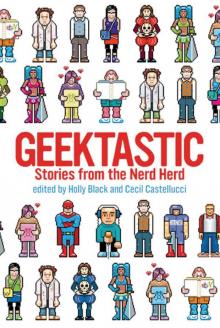 Geektastic: Stories from the Nerd Herd
Geektastic: Stories from the Nerd Herd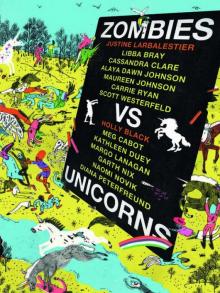 Zombies Vs. Unicorns
Zombies Vs. Unicorns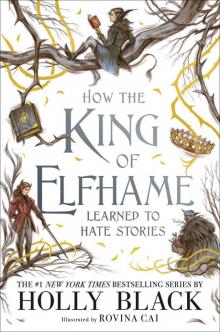 How the King of Elfhame Learned to Hate Stories
How the King of Elfhame Learned to Hate Stories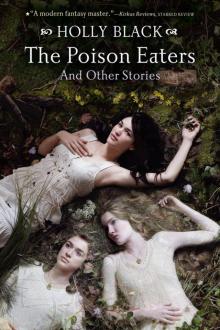 The Poison Eaters and Other Stories
The Poison Eaters and Other Stories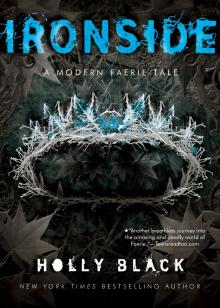 Ironside
Ironside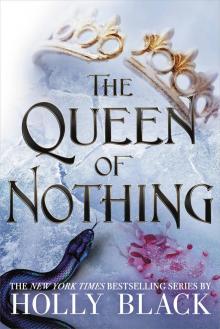 The Queen of Nothing
The Queen of Nothing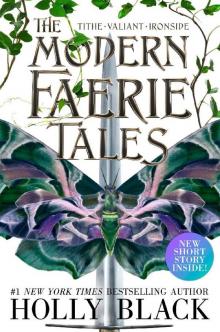 Modern Faerie Tales
Modern Faerie Tales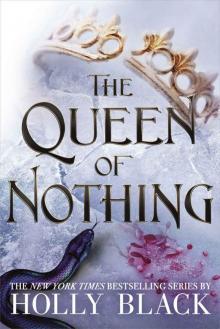 The Queen of Nothing (The Folk of the Air #3)
The Queen of Nothing (The Folk of the Air #3)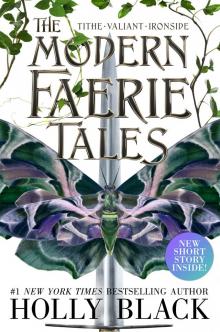 The Modern Faerie Tales
The Modern Faerie Tales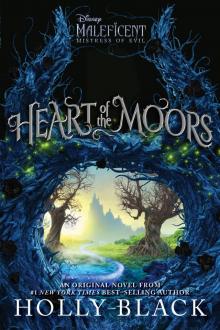 Heart of the Moors
Heart of the Moors The Golden Tower
The Golden Tower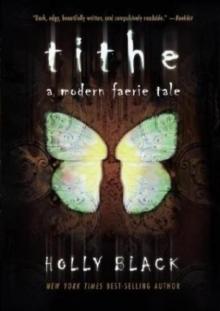 Tithe mtof-1
Tithe mtof-1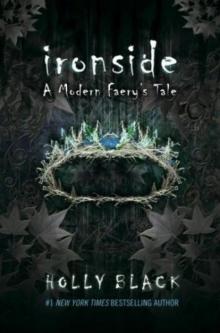 Ironside mtof-3
Ironside mtof-3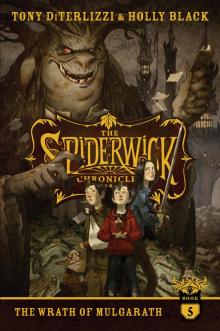 The Wrath of Mulgarath
The Wrath of Mulgarath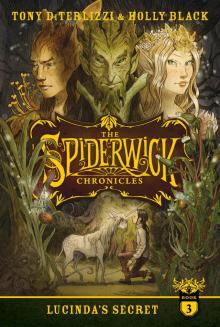 Lucinda's Secret
Lucinda's Secret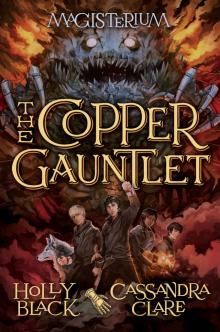 The Copper Gauntlet
The Copper Gauntlet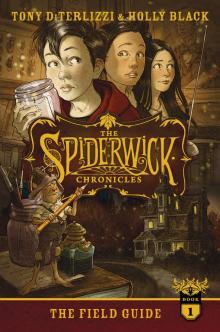 The Field Guide
The Field Guide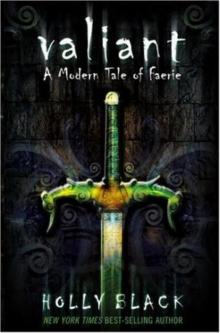 Valiant mtof-2
Valiant mtof-2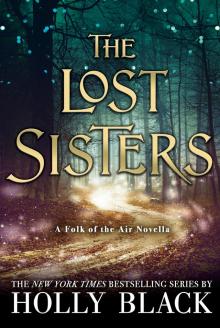 The Lost Sisters
The Lost Sisters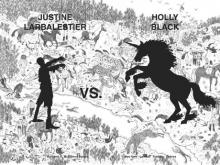 Zombies vs. Unicorns
Zombies vs. Unicorns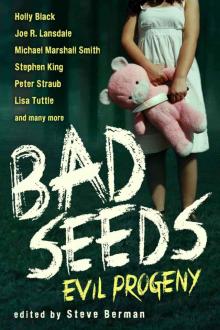 Bad Seeds: Evil Progeny
Bad Seeds: Evil Progeny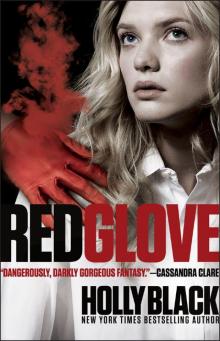 Red Glove (2)
Red Glove (2)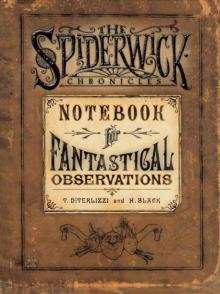 Notebook for Fantastical Observations
Notebook for Fantastical Observations The Iron Trial
The Iron Trial Welcome to Bordertown
Welcome to Bordertown